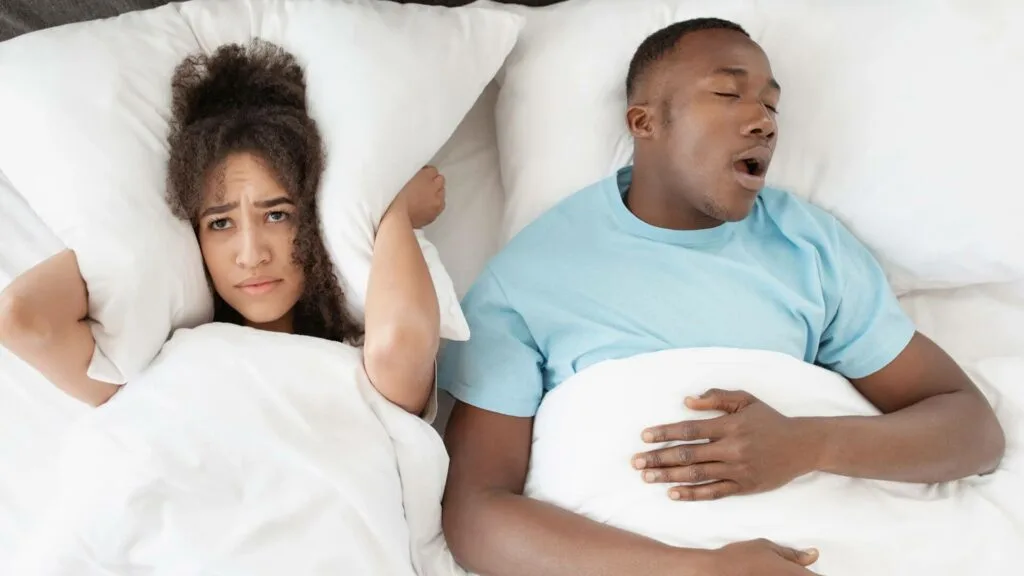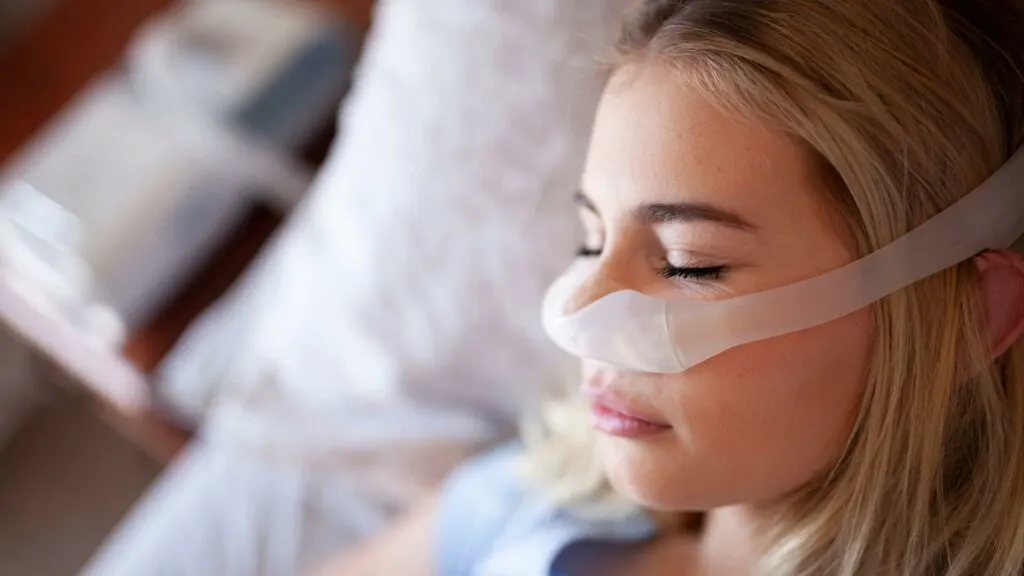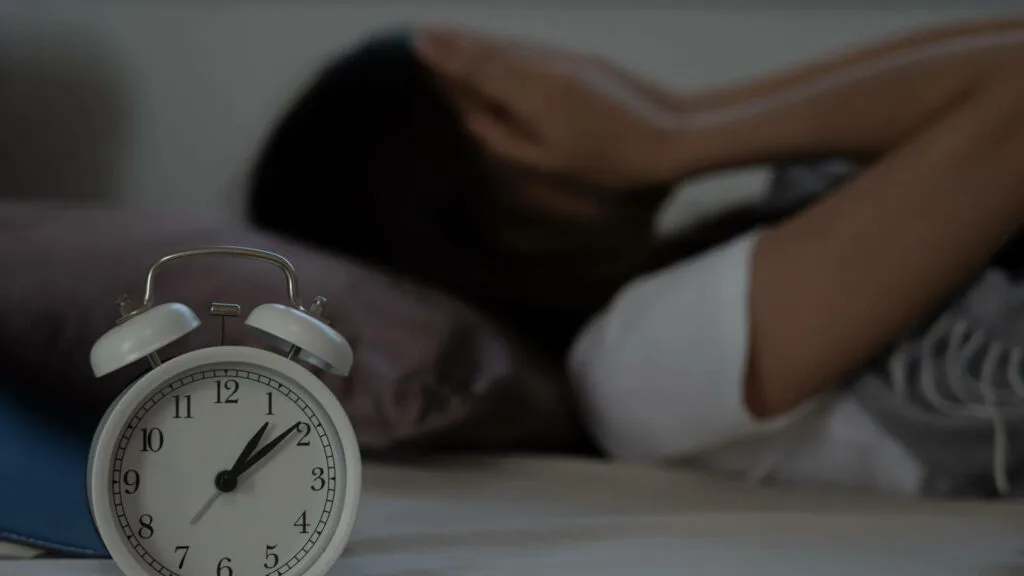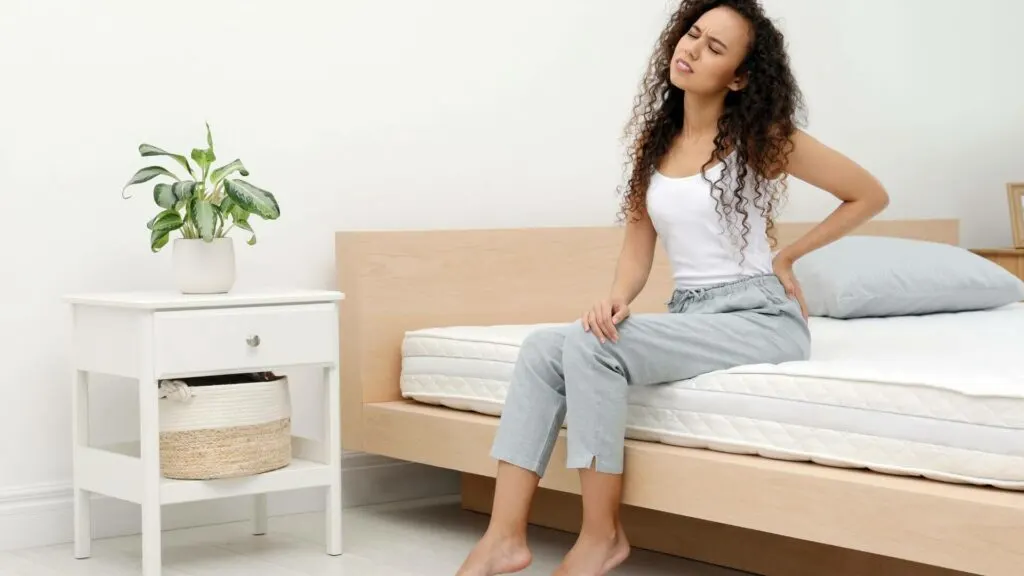Has your partner ever told you that you’re an excessively loud snorer? Do you wake up always feeling tired and lethargic?
You might be dealing with sleep apnea if you said yes to both.
Sleep apnea is a surprisingly widespread sleep condition with debilitating side effects affecting about 5% to 10% of people worldwide, or approximately 1 in 15 adults.
Sadly, not all sleep apnea patients get ample medical treatment for this condition. Individuals with sleep apnea often disregard or overlook their condition, intentionally or unknowingly.
If you suspect you have sleep apnea and want to do something about it, you’ve come to the right place.
This article will shed light on the potential warning signs of sleep apnea, which can further help direct you to the best road to recovery.

What is Sleep Apnea?
When healthy people sleep a solid eight hours a day, give or take, they will feel refreshed and energized to take on the next day.
However, people with sleep apnea don’t get that luxury.
Sleep apnea is a sleep disorder characterized by repeated pauses in breathing during sleep.
The most common type of sleep apnea is obstructive sleep apnea (OSA), which is when tissue blocks the airway during sleep, causing a reduction of oxygen flow to the lungs and the rest of the body.
People with sleep apnea often face fragmented and poor-quality sleep every night. This is because the apneas—or pauses—can cause them to rouse from their slumber in unwanted times.
Depending on the severity of the condition, some people can have more than 30 episodes of apnea in an hour. While there’s no cure to sleep apnea, there are treatment plans and sleeping habits you can consider to manage the condition.
Risk Factors of Sleep Apnea
Sleep apnea can affect anyone, but some people may be at more risk than others for this sleep disorder. These risk factors can be further classified into what you can and can’t control.
The non-modifiable factors are as follows:
- Ethnicity: African Americans, Native Americans, and Hispanics are among the most prone to developing sleep apnea.
- Family history: Having a family member with sleep apnea increases the likelihood of developing the condition.
- Age: Sleep apnea is more common in middle-aged and older adults.
- Gender: Men are more likely to develop sleep apnea than women. However, menopausal women and men are equally likely to develop the condition.
Some sleep apnea risk factors, on the other hand, may be induced by lifestyle choices, such as:
- Obesity: Excess weight can lead to increased tissue accumulation in the upper airway.
- Smoking history: Smoking irritates and inflames the airway, leading to narrowing and increasing the risk of sleep apnea.
- Alcohol consumption: Alcohol acts as a sedative and can relax the upper airway muscles, leading to narrowing
If you have these risk factors, observing your sleeping behavior and adopting better lifestyle changes is important. This way, you can significantly improve the quality of sleep.
Remember that depending on the severity of your sleep apnea, your doctor may also prescribe you a CPAP machine to wear while you sleep at night.
For more information on CPAP therapy, you can follow this link.

8 Warning Signs of Sleep Apnea
Before moving forward, seek advice from a doctor who can help you identify whether you have sleep apnea.
But if you want to know on your own, here are eight warning signs that may indicate sleep apnea.
1. Loud and Chronic Snoring
Does your partner complain about your loud snoring?
While people can snore without having sleep apnea, being a loud snorer is one of the hallmark signs of sleep apnea. Recording yourself during sleep is a good way to gauge whether you’re snoring.
If you notice yourself producing a throat-based snore, where the soft tissues at the back of the throat vibrate during sleep, you should seek medical evaluation. This snore often indicates an obstruction in the airways during sleep, which could indicate sleep apnea.
2. Excessive Daytime Sleepiness
Do you feel exhausted and sleepy during the day, even after a full night’s rest? This persistent daytime sleepiness is a common symptom of sleep apnea.
When you don’t feel energized even after what feels like a long time in bed, it might be because your sleep is interrupted by breathing obstructions in your throat.

3. Gasping or Choking During Sleep
If you’ve suddenly gasped for air at night, that’s a telltale symptom of sleep apnea.
People with sleep apnea may feel suffocated at night due to tissue blockage in their upper airways. This blockage can lead to the cut-off of oxygen, which can consequently rouse us awake in an attempt to breathe.
4. Morning Headaches
Chronic OSA sufferers are often met with a specific type of headache pain when they wake up; this pain is described as a constant pressing pressure that’s felt on both sides of the head. This typically lasts for four hours.
5. Restless and Fragmented Sleep
If you keep waking up at night, you’re likely dealing with sleep apnea. Mild sleep apnea can cause 5 and 15 episodes in an hour; moderate forms may have up to 29 events in an hour; severe forms can have upwards of 30 episodes.
These apnea episodes can make it hard for you to enter the restorative phases of sleep, leading to poorer sleep and making you feel drowsy during the day.

6. Memory Problems
As mentioned earlier, sleep apnea can prevent you from entering the restorative phases of sleep. REM sleep, which typically requires you to go through other stages of sleep before entering, is responsible for facilitating long-term memory storage.
Since sleep apnea causes fragmented sleep, your memory won’t be as good relative to people who sleep without interruptions.
7. Irritability and Mood Swings
We all know what it’s like running on little sleep and feeling grouchy the next morning. If you have sleep apnea, you’re likely no stranger to this phenomenon.
Sleep apnea disrupts the natural sleep cycle, turning what should be restful hours into periods of wakefulness and poor attempts to sleep.
8. Decreased Libido and Sexual Dysfunction
Sex, when sleep-deprived, isn’t downright impossible, but constant tiredness can cause a big reduction in libido.
Oxygen is required for the successful production of the sex hormone testosterone. This hormone is responsible for regulating libido. When our body isn’t absorbing enough oxygen, it can adversely impact our desire to have sex.

Jessi is the creative mind behind The Coffee Mom, a popular blog that combines parenting advice, travel tips, and a love for all things Disney. As a trusted Disney influencer and passionate storyteller, Jessi’s authentic insights and relatable content resonate with readers worldwide.
